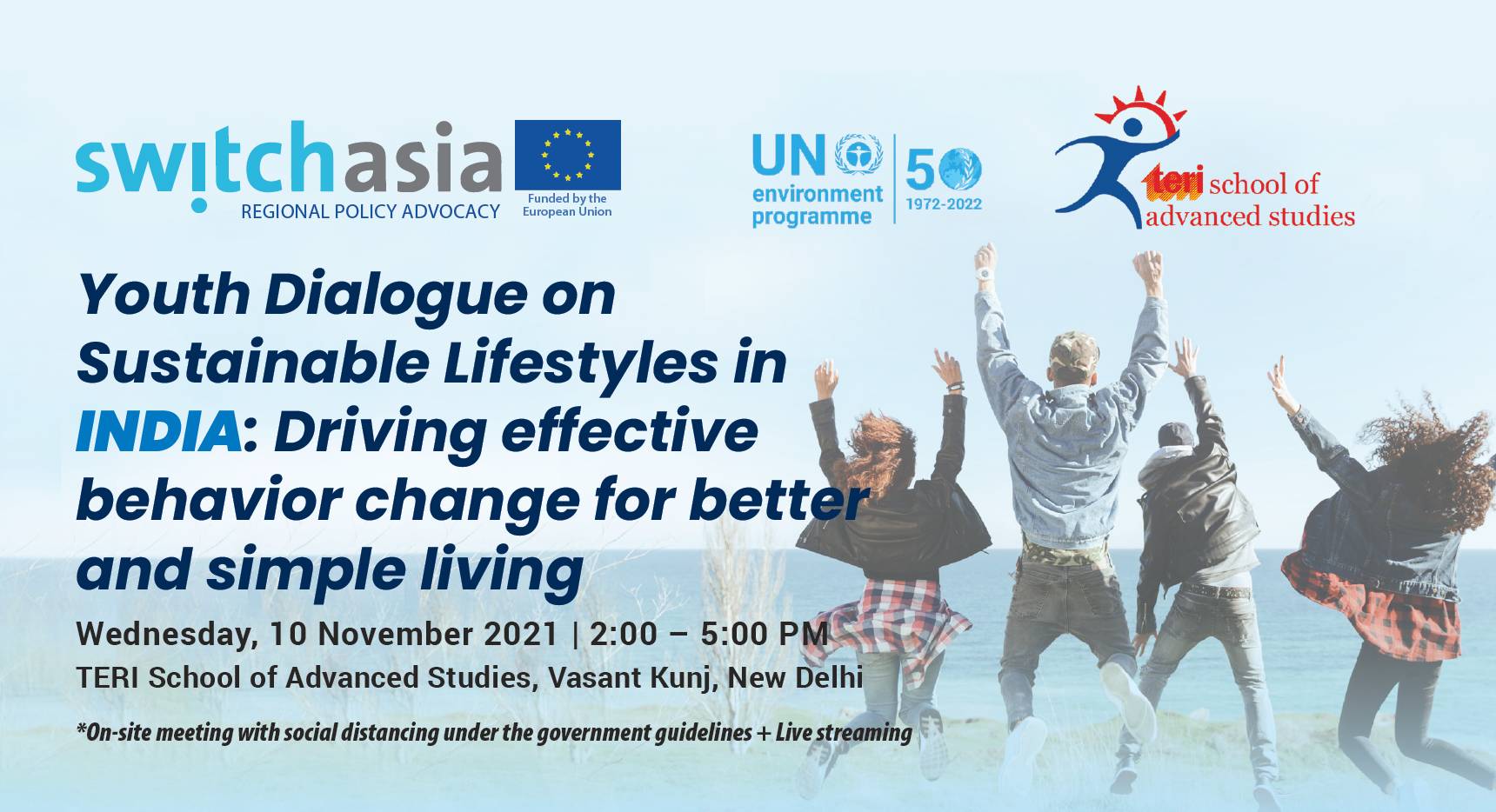
WHEN: Wednesday, 10 November 2021 I TIME: 14:00 – 17:00 (New Delhi) I REGISTER Here I Facebook LIVE I YouTube LIVE
*On-site meeting with social distancing under the government guidelines + Live streaming
Background
Sustainable lifestyles is one of the key elements for SCP and circular economy that influences every stage in the value chain based on life cycle perspective. By 2030, the global middle class is expected to reach 5.3 billion people, implying an addition of 2 billion people with increased purchasing power than today. Most of this growth is expected in Asia. By 2030, China and India together will represent 66% of the global middle-class population and 59% of middle-class consumption. While this may be construed as the driver for economic development, changes in consumer behaviour and consumption patterns are expected to increase demand for food, water, and energy by approximately 35%, 40% and 50% respectively by 2030.
India has the world’s largest youth population, and they have the potential to transform the production and consumption of goods and services by making conscious and informed choices in their daily lifestyles, shifting to more sustainable buying patterns, limiting waste, and leading technological innovation to foster a resource-efficient economy and equitable society. In this context a Youth Dialogue on Sustainable Lifestyles is scheduled on November 10th as an on-site event with Live Streaming. The event aims at enhancing awareness and alteration of actions among the largest demography in India on sustainable consumption and lifestyles, understanding barriers in adoption and identifying drivers of change.
As part of the pre event engagement activities with youth, a short survey questionnaire was released and a Live Twitter chat was organised on October 29th. Youth responses reflected that matters of overconsumption, unsustainable lifestyles, unabated urbanization and thoughtless urban planning were perceived as core instigators for resource depletion, biodiversity loss and species endangerment. Sustainable Food habits and buying less emerged as the immediate green goals that youth would adopt. The identified issues and opportunities will be further deliberated and discussed in detail with youth during the on-site National Youth Dialogue on Sustainable Lifestyles.
Agenda




